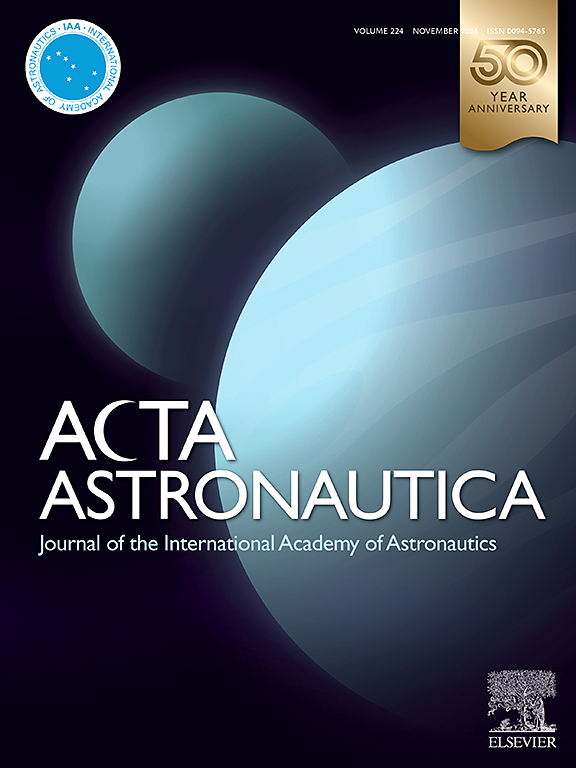通过基于激励的机制促进空间可持续性的多方利益攸关方合作
IF 3.4
2区 物理与天体物理
Q1 ENGINEERING, AEROSPACE
引用次数: 0
摘要
空间环境中碎片的扩散使近地轨道拥挤不堪,对空间任务和业务的安全性和可持续性构成重大挑战。国家、区域和国际各级的决策者正在制定和实施框架,以解决空间碎片问题。这些进程需要加强协调与合作,可能需要若干年才能生效。本文章由计算机程序翻译,如有差异,请以英文原文为准。
Fostering multi-stakeholder collaboration for space sustainability through an incentive-based mechanism
The proliferation of debris in the space environment, congesting the Low Earth Orbit (LEO), constitutes a major challenge to the safety and sustainability of space missions and operations. Policy makers at the national, regional and international levels are developing and implementing frameworks to address the concerns of space debris. The processes require increased coordination and collaboration and are likely to take a number of years before entering into force.
However, as the sense of urgency calls for immediate innovative, multi stakeholder solutions with a global scope, private actors from the space industry can fill the current void by undertaking initiatives which would foster voluntary and inclusive action for the long-term sustainability of outer space. The Space Sustainability Rating (SSR) presents a compelling example, with the aim of incentivising space operators to design and implement sustainable space missions and operations while enabling other key stakeholders from the space ecosystem to become part of this collaborative effort.
In particular, the SSR provides a new way to support space debris mitigation through a two-pronged approach: (i) It provides a rating system useable by satellite manufacturers and operators informed by transparent and comprehensive assessment to get a clear picture of where a specific mission stands on sustainability and against best practices. (ii) It hosts an action-focused platform in which all actors from the space sector can engage, including throughout the value chain. In other terms, the SSR can serve as an action arm for the implementation of the current and future guidelines for space sustainability.
This work depicts how space actors, with a focus on satellite operators, are using the SSR. By showcasing an example of rating process and lessons learned with EnduroSat's Platform-1, it analyses its effectiveness to incentivise space actors to implement sustainable behaviours and lists the benefits they can derive from using the rating system. Furthermore, the experience of satellite operators from the other side is also described. The potential future developments to strengthen the incentive-based mechanism of the SSR are explored, and ultimately how its promotion among stakeholders, and potential spill-over, can lead to a wider adoption of the rating system (for operators, stakeholders from the space ecosystem and policy-makers).
求助全文
通过发布文献求助,成功后即可免费获取论文全文。
去求助
来源期刊

Acta Astronautica
工程技术-工程:宇航
CiteScore
7.20
自引率
22.90%
发文量
599
审稿时长
53 days
期刊介绍:
Acta Astronautica is sponsored by the International Academy of Astronautics. Content is based on original contributions in all fields of basic, engineering, life and social space sciences and of space technology related to:
The peaceful scientific exploration of space,
Its exploitation for human welfare and progress,
Conception, design, development and operation of space-borne and Earth-based systems,
In addition to regular issues, the journal publishes selected proceedings of the annual International Astronautical Congress (IAC), transactions of the IAA and special issues on topics of current interest, such as microgravity, space station technology, geostationary orbits, and space economics. Other subject areas include satellite technology, space transportation and communications, space energy, power and propulsion, astrodynamics, extraterrestrial intelligence and Earth observations.
 求助内容:
求助内容: 应助结果提醒方式:
应助结果提醒方式:


